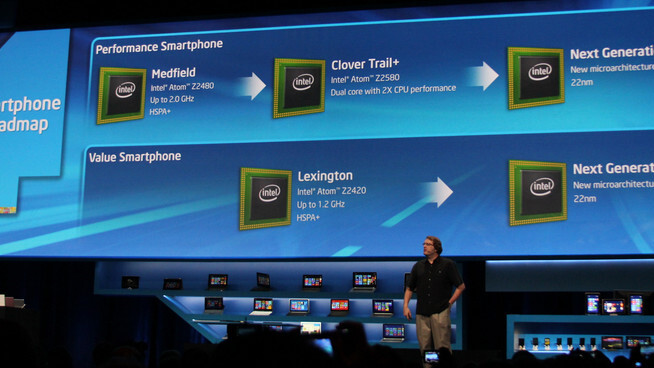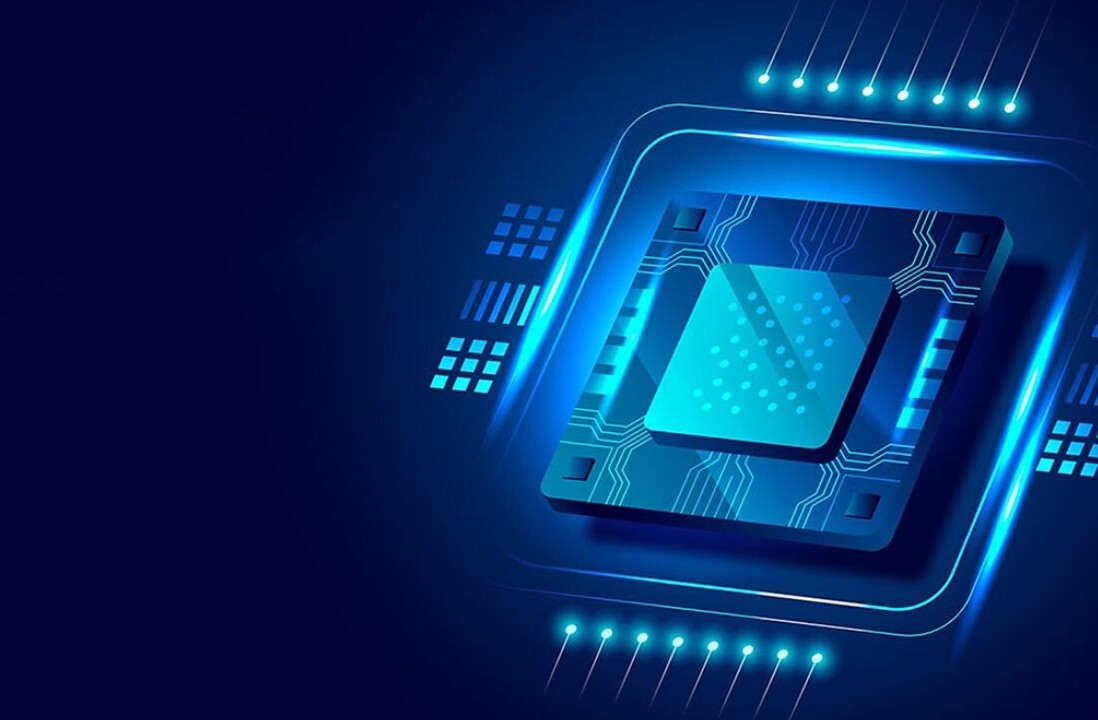
Today at CES, Intel announced a number of updates to its processor lineup, including work that will impact tablets, smartphones, and ultrabook computers. Ultrabooks, a project to combat the thin and light Macbook Air from Apple, has long been a hit and miss affair, with some devices suffering from build quality deficits.
The company shouted in an introductory video that, much like the forward pass, new machines running its chips are ‘changing the game.’ Audible groans were heard in the audience during the hype.
In its official release, Intel touted new Atom processors, stating that they are aimed at the “value segment of [the] smartphone market.” The company stated that it has support from OEMs such as Acer, among others. Last CES Intel announced that it was working on taking its silicon into the smartphone space. The company has had a slow start in the effort, but appears to be set to conquer at least part of the market.

It’s worth nothing that with just three OEM partners, of which only one is of decent scale, Intel’s smartphone efforts remain nascent.
The company promised that its first 22nm quad-core Atom processors that will double the processing capability of current Atom chips will be out this year, for the holiday season. For tablets, this could be a key performance boost.

For ultrabooks, Intel touched on processors of its Core line that will run on power drain as low as 7 watts, which it claims will enable “thinner, lighter, touch-based” ultrabooks. Given that Windows 8-based machines will benefit from that sort of power, Intel is betting along its usual lines: the WinTel partnership.

In a strong move, Intel will be moving its 7 watt processor technology into its current generation of Core processors, which will bring the low-power savings to its current line of chips, without forcing consumers to wait for the next generation.
Finally, Intel’s claims that its coming refresh of the Core line be all around surperior products, with more power, and less battery strain.
If you wanted evidence of the Post-PC narrative, Intel’s event today is a ringing endorsement of the idea: We are hardly living in a PC world, as silicon’s focus is now more than ever mobile-first.
Get the TNW newsletter
Get the most important tech news in your inbox each week.



